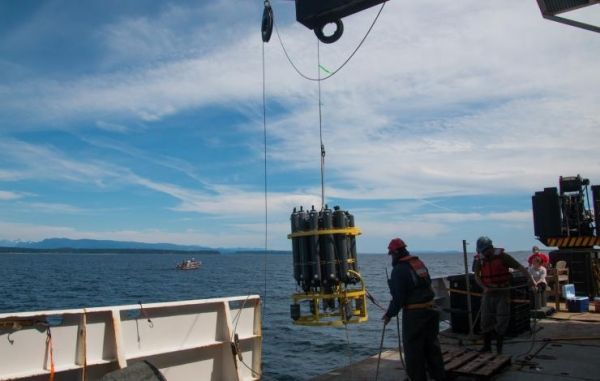Scientists have shown that coastal waters and river estuaries can exhibit unique vulnerabilities to acidification than offshore waters. This acidification, detected in waters off the United States West Coast and the Gulf of Mexico, can lead to disorientation and cognitive problems in some marine fish species, such as salmon, sharks, and cod. This work is presented at the Goldschmidt Conference in Boston.
Scientists have recently discovered that marine creatures can be adversely affected by hypercapnia, a condition of too much dissolved CO2 in seawater (CO2 partial pressure, or pCO2). When this level rises above 1000 micro atmospheres (1000 µatm), some fish species suffer cognitive problems and disorientation, such as losing their way or even swimming towards predators. Surface ocean CO2 partial pressures tend to be around 400 µatm, so until now scientists have thought that hypercapnia was a problem which would only become apparent over time in subsurface waters.
Continue reading at Pacific Marine Environmental Laboratory
Image via Meghan Shea, Pacific Marine Environmental Laboratory


